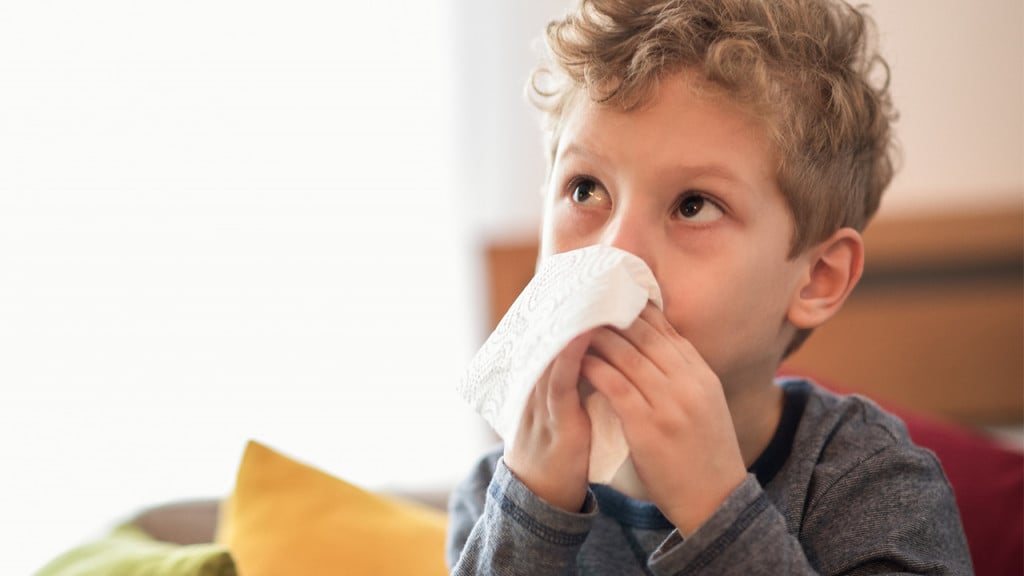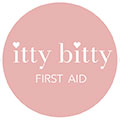8 Home Remedies For Kids' Cold
Posted by Laura Klein on 4th Feb 2020
As kids head back to school and kindy, germs, sniffles and colds will be all around. Many over the counter medicines are expensive and not always effective. Here are some tried and tested home remedies for battling coughs and colds at any time of year, and they work just as well for adults too.
1. A Spoonful of Honey
Several studies have shown that swallowing one teaspoon of honey about half an hour before bed can help your little one get a better night’s sleep and settle a cough. It’s believed that the antimicrobial and antibacterial properties of honey may be at work.
However, remember that kids under the age of one should never have honey due to the risk of infant botulism.
2. Plenty of fluids
Keeping kids hydrated is a really important part of making them feel better, according to WebMD. “A cold or cough can make kids lethargic, so they won’t want to eat or drink much, which means they can get even more lethargic, and the cycle continues,” he says. Offer small amounts of food and especially liquid often.
Kid-friendly options include chicken noodle soup, green tea with honey, juice mixed with a bit of water, and frozen treats like orange and lemon juice pops.
3. Saline spray
Saline drops and mists can help because salt is highly anti-bacterial and the saline mixture loosens the mucus, making it easier for a child or adult to clear out their nose. Home made saline should use iodine-free salt and cooled boiled water, to ensure low irritation to sensitive nasal passages.
Babies can only breathe through their nose, so it's essential to keep the nostrils clear of mucus, dust or allergen particles. As they can't blow their own nose until the age of 4 or 5, a battery powered snot sucker can quickly and easily suction the mucus out, so they can breathe, feed and sleep better.
You can also teach kids ages five and up to gargle with salt water (a teaspoon of salt dissolved in a cup of warm water) to help relieve a sore throat.
4. Humidifier
A humidifier in your child’s room can help manage cough and cold symptoms by keeping their airway moist. It turns water into vapour via a fine mist, for easy absorption through the mouth, nose and skin. High quality humidifiers/vaporisers have inbuilt air purifiers too, which cleanse the air of dust, allergen and virus particles. Drops of 100% pure essential oil like tea tree, eucalyptus, lavender and chamomile can also be added to the water chamber, for increased wellness.
A humidifer/vaporiser is essential during times of illness, but is such an easy way to assist breathing and sleeping, so it's recommended to use 365 nights a year.
5. Wash Hands
The easiest way to prevent the spread of germs to other members of the family. Teach your child to wash for as long as it takes to sing the "Happy Birthday" song, to ensure all germs are removed. Remember to wash hand towels more frequently is there is sickness in your home.
6. Steamy Shower
It's not recommended to use a STEAM vaporiser for long periods in a bedroom as it causes heat and condensation. The room becomes stuffy and it can harbour mould spores.
However, a short burst of warm steam via the shower or bath, can provide relief for congestion, cough and respiratory stress. A 10 minute session in a steamy bathroom, breathing the steam deeply and calmly can relieve cough and cold symptoms and make your little one feel more relaxed.
7. Extra pillows
Add an extra pillow to elevate your child’s head and help clear congestion
8. Chest Rub
Is that strongly scented stuff from your own childhood a good idea? The over-the-counter ointment is still quite popular as a topical option. However, these balms can create a burning sensation on the skin.
We recommend our Organic Balms which still contains organic, effective ingredients to assist breathing, clear a blocked nose and assist with a peaceful sleep. Just be sure your little one cannot rub the balm in their eyes or mouth.
When to see a doctor
Signs that you’re not dealing with a run-of-the-mill cough or cold and your child should be seen by a healthcare provider include wheezing; laboured or fast breathing (nostrils are flared, skin is stretched tight over the ribcage and a prescribed inhaler isn’t helping); a cough that leads to choking, vomiting or trouble breathing; difficulty waking up; and infrequent urination due to dehydration.
These symptoms could be red flags that you’re dealing with influenza, bacteria or another serious infection. When it comes to temperature, you should take your child to a doctor if their fever lasts longer than 72 hours, according to the Canadian Paediatric Society.
The bottom line? Coughs, colds and viruses are a fact of life. And while there’s no magic approach to zap them instantly, you can manage their symptoms and help your child get some healing rest. “Comfort is your ultimate goal,” says Dr Friesen.

















